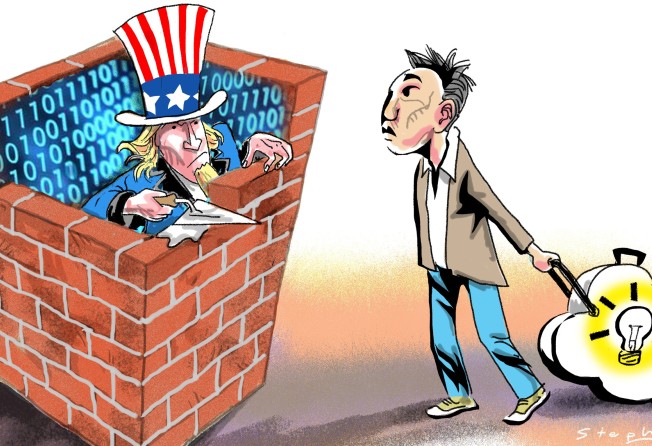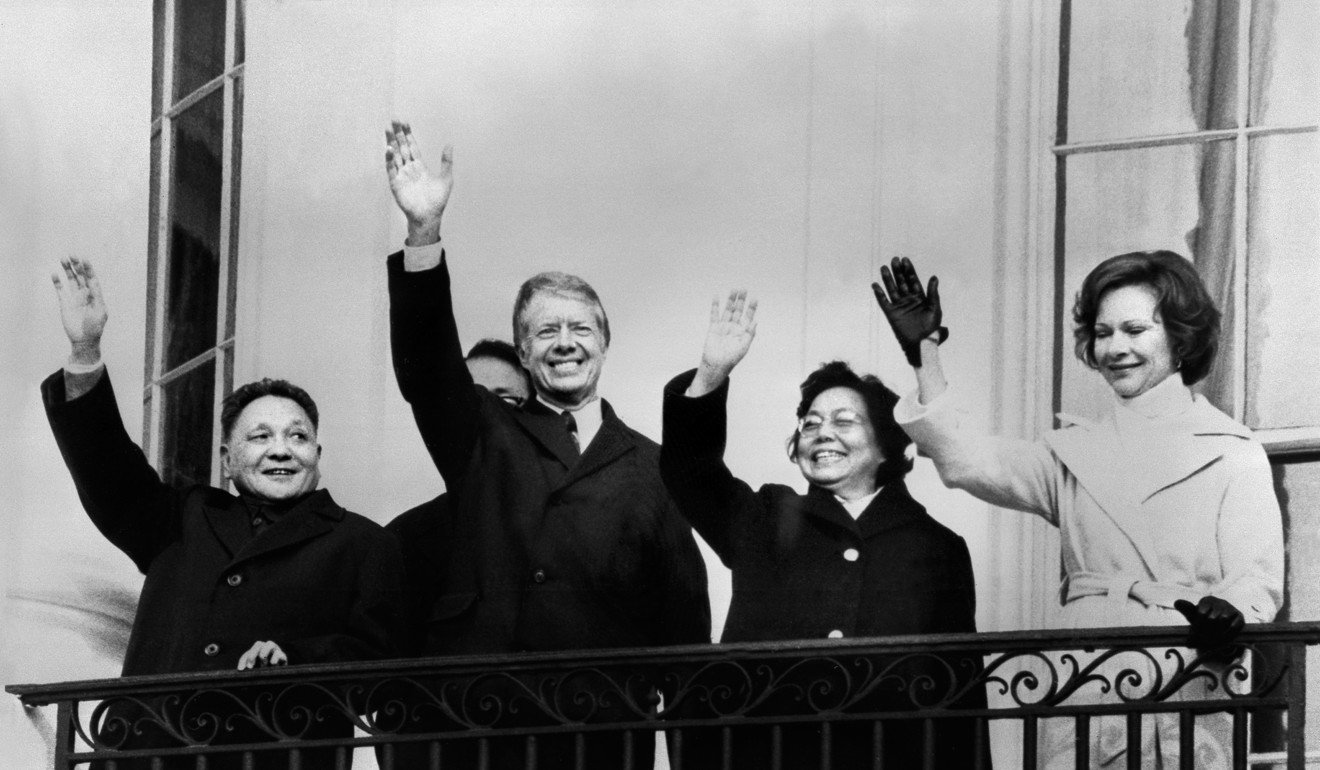‘America first’ shouldn’t stop the US from welcoming Chinese students and other global talent
Vasilis Trigkas says US protectionism in the form of visa restrictions on Chinese seeking to study in American universities would only harm the country, which has long benefited from being able to attract top talent

Almost half a century after the “Nixon shock”, when US President Nixon unilaterally declared that the United States would abandon the dollar’s convertibility to gold and impose a 10 per cent import surcharge, the world is now being shaken by the “Trump shock”. While Nixon targeted the European and Japanese trade surpluses, this time, the epicentre of the president’s rage is China’s strategic protectionism, which compels US corporations to transfer technology in return for access to the world’s most populous market.
The US administration has gone to great lengths to quantify the damage that Chinese techno-protectionism has caused to American industry and puts the bill at more than US$60 billion per year – the value of Chinese imports that President Donald Trump chose to apply retaliatory tariffs on. While there are indeed reasonable concerns about China’s coercive treatment of US and European companies and its draconian market access regulations, the proclamation that China’s success is based on technology theft to the detriment of US society does not do justice to the genuine efforts of the Chinese people to modernise the country.
At the core of China’s accomplishments in science and technology have been hardworking students and researchers who studied in universities across the US. As President Jimmy Carter put it, recalling a classic incident characterising the US-China rapprochement of the late 70s: “One night, the phone rang about 3 o’clock in the morning, and I thought ‘Oh my, there’s a tragedy somewhere in the United States ... It was my national science advisor. He said, ‘Deng Xiaoping insisted I call you now to see if you would permit 5,000 Chinese students to come to American universities.’ And I said, ‘Tell him to send a 100,000.’”
The US out-innovated both Nazi Germany and the Soviet Union, for it remained a beacon of liberty able to attract the world’s smartest people
Since then, the number of Chinese students who attend US universities has risen exponentially, surpassing 320,000 in 2015-16. Undergraduate and postgraduate students are usually self-funded and contribute substantially to the revenues of American universities – income that is reflected in the US trade of services surplus with China. Those enrolled in doctoral programmes are usually sponsored by US-based foundations, but their selection is meritocratic and their contribution to US scientific excellence essential. US universities have long been leaders in cutting-edge research mostly due to their ability to attract the world’s brightest researchers, evaluate their work purely by its scientific merit and build a cosmopolitan community of scientists in their laboratories.
While many Chinese researchers in some of America’s most prestigious universities have chosen to stay in the US and work in Silicon Valley or pursue an academic career, others have returned to China, sharing ideas and knowledge with their compatriots. This transfer of knowledge and research methodology has been the catalyst for China’s meteoric rise in innovation and technology rankings. Some of the stellar science professors at Tsinghua University, which now ranks higher than MIT in computer science and engineering, according to the US News and World Report, have been US educated while others have been visiting researchers at top US research laboratories.

Still, economic nationalists could assert that the eventual repatriation of US-educated Chinese is proof of strategic myopia and that the US should limit student visas to Chinese researchers and intervene in the meritocratic selection of candidates by US universities – an action that is already being considered. Yet, such restrictions would inhibit the attraction of top talent to the US and undermine the nation’s innovative capacity. In addition, the US-educated repatriated Chinese have spent some of their most creative years living in a vibrant republic and, however patriotic and committed they are to their homeland, their appreciation for freedom could eventually become the catalyst for a peaceful transition to a more open and liberal political regime at home – an eventuality with enormous dividends for the US and the world.
Yan Xuetong, a professor at Tsinghua University, has asserted that the unfolding technological competition between the US and China will be determined by the quality of human talent that each side attracts. The US out-innovated both Nazi Germany and the Soviet Union, for it remained a beacon of liberty able to attract the world’s smartest people. If the US administration targets Chinese researchers and builds walls barring talent, by making H1B visas harder to obtain for example, it will undermine the vibrancy of the US economy, hindering its ability to innovate. Meanwhile, China has offered significant incentives to attract international scholars and is narrowing the human capital gap with the US.
People-to-people exchanges remain the most solid element empowering Sino-US relations, for people do not just transfer knowledge but also ideas and ideals crystallised into vivid memories of personal interactions. Cheng Li, a Brookings scholar and Chinese immigrant to the US, declared at a recent forum that if Sino-US people-to-people exchanges are harmed, there will be nothing left to prevent a new cold war. Initiatives such as “100,000 Strong”, which supports US students in China, should be pursued with bilateral support.
China and the US must not target researchers but instead empower them to flourish and share the fruits of their intellectual achievements with the world. As British historian Arnold Toybnee said: “We shall have to share out the fruits of technology among the whole of mankind. The notion that the direct and immediate producers of the fruits of technology have a proprietary right to these fruits will have to be forgotten.”
Vasilis Trigkas is an Onassis Scholar and research fellow in the Belt & Road Strategy Centre at Tsinghua University